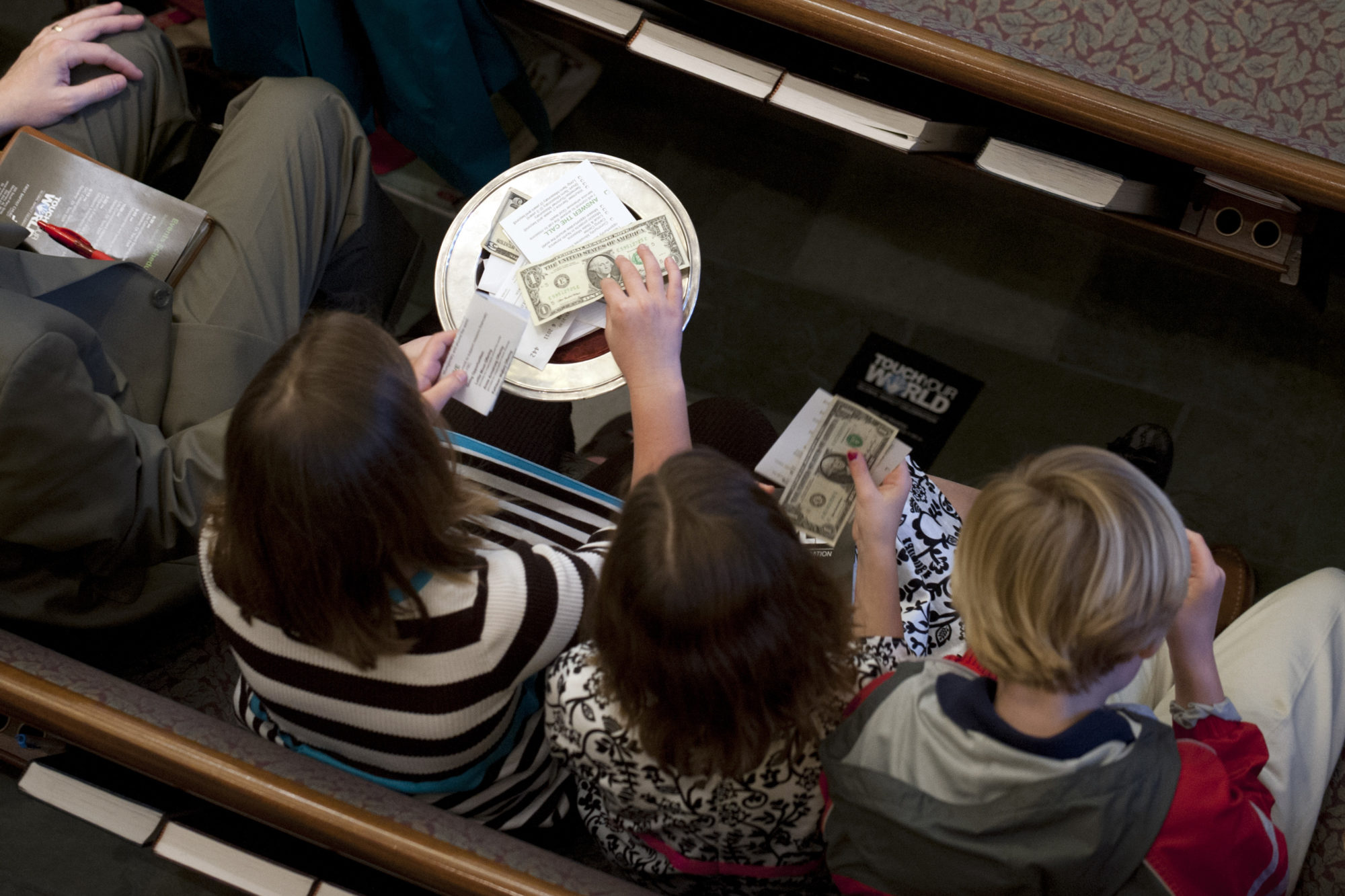
Whether we realize it or not, we testify to what we believe about the gospel by the way we give for the spread of gospel. Material resources are God-given tools, and God uses them in the hands of his people to accomplish his purposes, display his glory, and spread the gospel to the world.
God has charged the church to steward the gospel—not only the content of the message but also providing resources to get the message out to the world. The way a church does these two things reveals how highly it actually regards the gospel.
We testify to what we believe about the gospel by the way we give for the spread of gospel.
Stewardship as a Demonstrative Principle
Churches, for the most part, fall into one of four categories when it comes to money and generosity. First, there is Poverty Theology. This asserts that money and wealth are inherently sinful and that poverty equals spirituality. But while self-indulgence certainly needs to be challenged, God wants Christians to not only joyfully receive the good gifts he has entrusted to them, but to become faithful stewards and generous givers of his resources (1Tim 6:17-18 ESV).
Second, there is Prosperity Theology. This false doctrine promotes the idea that God wants believers to be physically healthy, materially wealthy, and personally happy. Prosperity Theology teaches that one’s accumulation of material wealth is an indication of God’s favor. These churches teach their members to give money in order to gain greater material blessings. But the “give to gain” mentality twists the gospel and distorts the motive to sacrifice and share. Christian generosity should actually grow out of one’s deep love for God and gratitude for Christ’s atoning sacrifice, not from selfish desires.
Comfortable Complacency
Third, there is a belief that may be called the Prevalent Theology. This is the “American Dream” approach to wealth. If Prosperity Theology is about excess, Prevalent Theology is about comfort that leads to complacency.
Prevalent Theology tells people to find security in owning a car or two, buying a home or two, and taking nice vacations. After all, “that must be what life is all about”—so the thinking goes. But such an approach to wealth has left souls empty, hopeless, and unfulfilled. When wealth is worshiped, it leads to making little, if any, true sacrifice. Prevalent Theology leads many Christians to make idols out of good things, so that they never fully enjoy the Giver of good gifts himself.
Stewardship that Proclaims God’s Greatness
Biblical stewardship, however, is liberating, exhilarating, and purposeful. I call it Proclamation Theology. This teaches Christians to steward their wealth so they can make Jesus known to the world. Proclamation Theology frees people to be content with what God has given them, to use what God has entrusted to them, and to glorify God by funding the promotion of his gospel.
Proclamation Theology sees one’s chief focus in life as using all of one’s time, resources, and influence to make Jesus and his gospel known to the whole world. The local church is an ideal place where believers can be instructed in Proclamation Theology. Local churches are to be vibrant educational centers where Christians learn to not only think God’s thoughts, but also practice his heart. And partnering with a global missions agency–like the International Missions Board (IMB)–gives churches a launching pad for applying Proclamation Theology, so that it transforms hearts and deepens believers’ perspectives on life and eternity.
Churches Demonstrate Love for the Gospel by Practicing Stewardship
Churches that teach a Proclamation Theology serve their members well by teaching them to rightly reject the fallacies of human philosophies and the folly of worldly ways. Christians can then take an active part in making the gospel of Jesus Christ known to every tribe, tongue, and people.
Put simply, our generosity displays why we love God and how much we love his gospel. Our generosity makes known how our hearts have been transformed by the gospel. Our generosity puts on display a willingness to give, serve, share, and sacrifice. It reveals that we reject greed, selfishness, and personal ambition. It demonstrates that we seek to be like Christ in giving sacrificially.
Our generosity displays why
we love God and how much
we love his gospel.
When the church embraces Proclamation Theology and Christians practice stewardship and generosity, the witness of the church points to the greatness of God and to the goodness of the gospel. Then, and only then, will the wisdom of God be on display within the church by the way we give generously and live sacrificially.
The role of the church in funding missions is—simply and powerfully—to teach and practice a Biblical theology of stewardship so that the glory of the gospel is on display through God’s church and his people.
Dr. Rob Peters is the senior pastor of Calvary Baptist Church in Winston-Salem, North Carolina. He is married to his wife Wendy and is the father of a daughter and two sons. Rob has been active in church planting and leadership development on four continents for the past 25 years. You can follow him on Twitter @DrRobPeters.
For more information on how your church can participate in cooperative giving that resounds among the nations for the glory of God, check out the Lottie Moon Christmas Offering.

